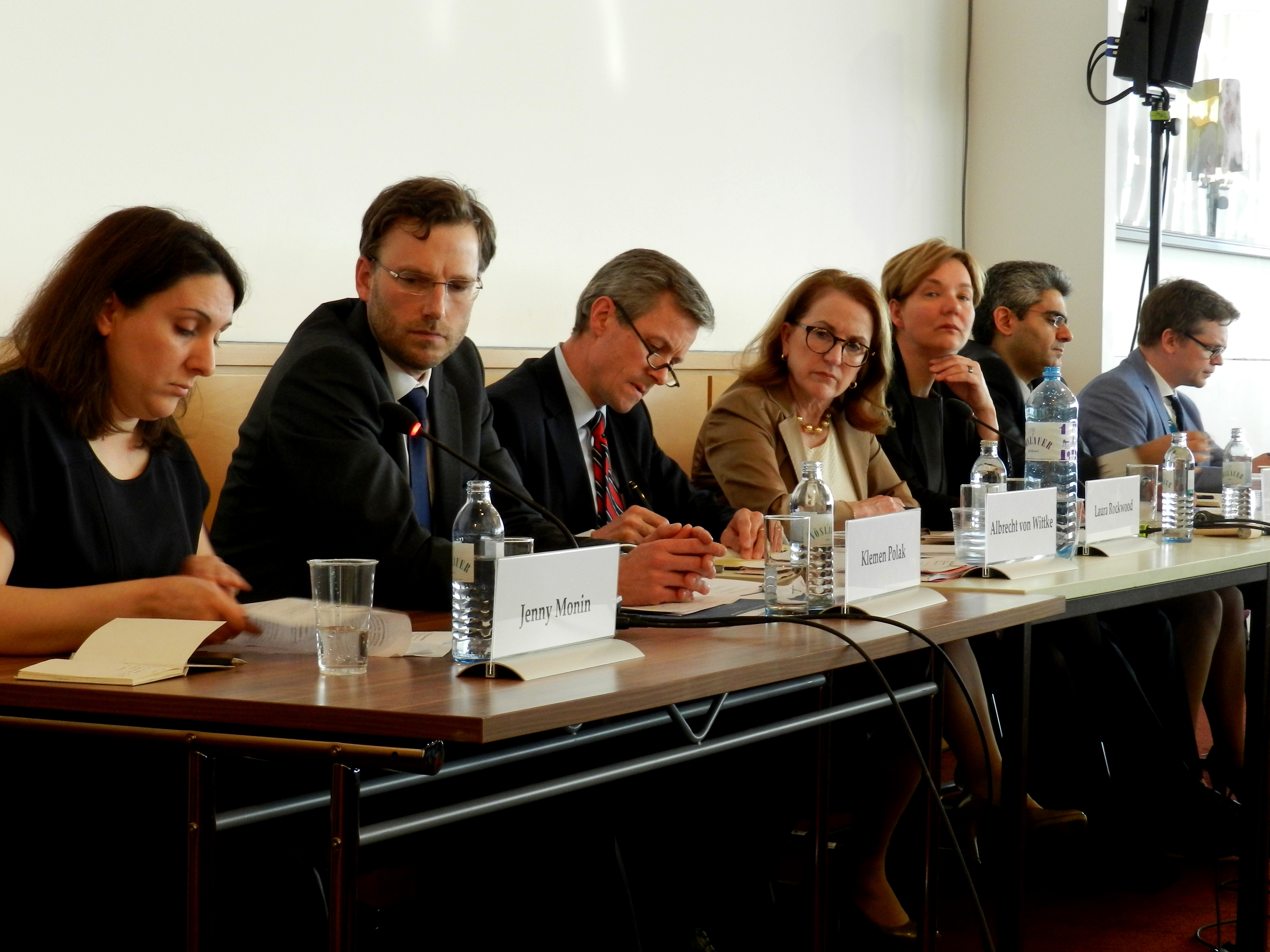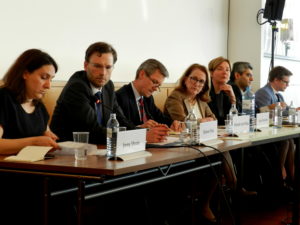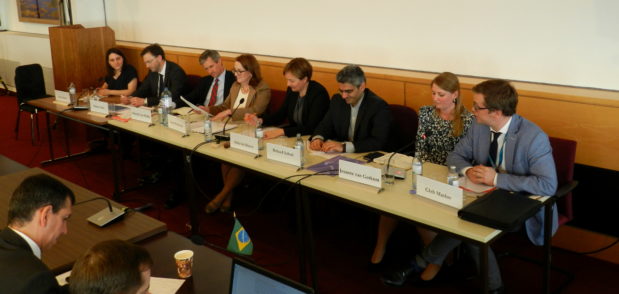
On 12 April 2018, the Permanent Mission of the Kingdom of the Netherlands to the UN Organizations in Vienna organised a presentation on the Joint Comprehensive Plan of Action (JCPOA) Procurement Channel, co-hosted by the VCDNP and the Permanent Mission of Japan to the International Organizations in Vienna.
 The discussion, moderated by VCDNP Executive Director Laura Rockwood, focused on the technical aspects of the Procurement Channel and its impact on national export control mechanisms. The speakers included a representative of the Dutch Permanent Mission, officials actively engaged in the Procurement Channel from the UN Secretariat in New York, the EU Delegation in Vienna, Iran and Russia, as well as national export control experts from the Netherlands and Germany.
The discussion, moderated by VCDNP Executive Director Laura Rockwood, focused on the technical aspects of the Procurement Channel and its impact on national export control mechanisms. The speakers included a representative of the Dutch Permanent Mission, officials actively engaged in the Procurement Channel from the UN Secretariat in New York, the EU Delegation in Vienna, Iran and Russia, as well as national export control experts from the Netherlands and Germany.
The introduction outlined the main provisions of the United Nations Security Council Resolution (UNSCR) 2231 (2015) and the procedures related to the Procurement Channel. The JCPOA established a dedicated mechanism - the Procurement Channel - allowing Iran to procure NSG listed goods. It generally covers the supply, sale or transfer of nuclear and dual-use items, materials, equipment, goods, and technology as set out in the Nuclear Suppliers Group Guidelines for Transfers Proposals. States may also use exemptions to the Procurement Channel, as set out in Annex B to UNSCR 2231, for example, with regard to the export of equipment for light water reactors to Iran or with regard to assistance in the modernization of the Arak reactor, among other items. All information about optional templates, including all the relevant explanatory notes is available publicly via the webpages of the UN Security Council and the Delegation of the European Union to the International Organisations in Vienna.
In terms of procedure, the procurement channel proves to be rather straightforward and uncomplicated, adding up on average only 50 days to a national export licencing process. After submission of the proposal by the exporting state to the Security Council, the Security Council conveys the proposal to the Coordinator of the Procurement Working Group (PWG) – based in Vienna at the EU Delegation - who, in turn, dispatches it for review to the PWG member countries, i.e. China, France, Germany, the Islamic Republic of Iran, the Russian Federation, the United Kingdom and the Unites States of America.
It was also highlighted that, despite the fact that the mechanism has been in place and fully functional for more than two years, the number of received proposals fell short of expectations. However, the trend is promising and more and more states start submitting proposals.
A practical example on the German export-control system of transfers to Iran, which has submitted several proposals through the Procurement Channel, helped participants better understand the system. Germany has adjusted its export controls routine at all stages of implementation in order to meet the requirements laid out in the UNSCR 2231. For example, during the administrative checks, Germany’s Federal Office for Economic Affairs and Export Control now requires that an exporter submits an end-use certificate issued by the responsible authorities in Iran. An important message outlined by Germany was that, when preparing an application, the exporting country needs to look ahead towards all stages of the export itself, including post-export activities, such end-use verifications.
The export control process in the Netherlands is seen as a partnership between authorities and an exporter, where the former readily provides all necessary information to the latter. Even though the Netherlands has not yet made use of the Procurement Channel, if needed, they are prepared to implement all measures envisaged by the Procurement Channel.
An important aspect of the discussions covered end-use verification. Under the JCPOA, the exporting country would need to ascertain that it is in a position to exercise the right to end-use verifications for the exporting item. The exporter would thus obtain such end-use certificates from the Atomic Energy Organization of Iran and the Ministry of Industry, Mine and Trade for goods intended for Iran’s civil nuclear programme and for dual-use items, respectively.
All speakers expressed optimism with regard to the future of the Procurement Channel. It was emphasized that the Procurement Channel is a fully functioning and uncomplicated mechanism. The speakers strongly encouraged its use and highlighted its benefits of bringing about mutual “prosperity and trust” to all participating parties.
For further information on the procurement channel, advise was offered by all participants in the panel, on top of the webpages mentioned above.
